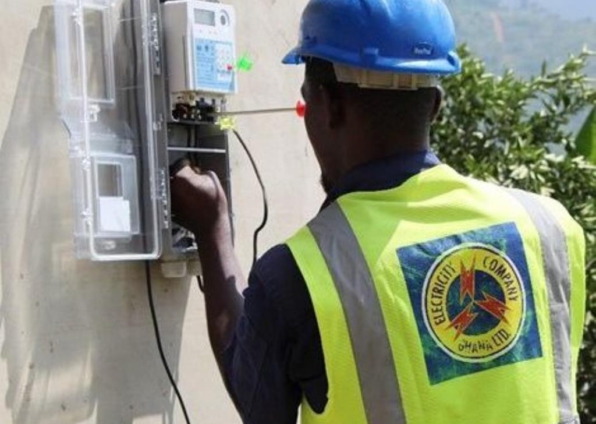Government is intensifying its efforts to bring private sector engagement into the operations of the Electricity Company of Ghana (ECG) as part of a major reform to stabilise the sector’s finances and ensure long-term sustainability.
Finance Minister Dr Mohammed Amin Adam highlighted the urgency of these reforms at the recent IMF/World Bank meetings, pointing out that the annual $1.2 billion deficit in the energy sector “is not acceptable.
"Funds that should be allocated to essential services like healthcare and education are being diverted to cover losses in a sector that should ideally attract market-based solutions.”
As part of the financial overhaul, the government is implementing the “cash waterfall” mechanism to ensure ECG’s revenue is fairly distributed across the energy value chain.
Dr Adam stated that restoring investor trust is crucial, noting, “People have lost confidence in our ability to manage the energy sector due to financial issues.”
The government is also renegotiating power purchase agreements with Independent Power Producers (IPPs) to reduce its debts.
Recent discussions with IPPs like Sunon Asogli, whose 560MW plant shut down over a $259 million payment dispute, show progress but challenges remain.
Dr Adam reassured that the shutdown has not affected the power supply, “If one plant shuts down and the others continue to operate, it simply means that we have enough to supply our people.”
New agreements with Cenit and AKSA, two of the six IPPs involved in restructuring talks, have already been signed and do not require parliamentary approval, streamlining their operational continuity.
However, negotiations with Sunon Asogli have faced setbacks, with the company’s request for an additional $30 million in payment being declined by the government.
“While we initially agreed to a $30 million one-off payment, Sunon Asogli later demanded another $30 million. This was not part of our settlement terms,” Dr Adam stated.
He was emphatic that no funds will be released until the agreement is signed.
Other IPPs like Karpowership are also in talks with the government, though their recent request for an additional $70 million was firmly rejected by Dr Adam, who underscored the government’s commitment to responsible spending.
“We have to negotiate and sign before I make any payment. Ghana is not just a street-country,” he declared.
Pending agreements with Cenpower and Amandi Energy await parliamentary ratification, with Dr Adam calling on Parliament to reconvene and approve these critical reforms.
“This is one of the effects the suspension has on government business because we were expecting parliament to approve these renegotiated agreements.”
With these reforms, government hopes to rebuild trust, stabilise the sector, and ensure that Ghana’s energy infrastructure can support its long-term goals.
Latest Stories
-
Queenmother calls on President-elect Mahama to appoint more women in his government
2 hours -
Atletico Madrid beat Barcelona to go top of La Liga
2 hours -
Usyk breaks Fury’s heart with points win in rematch
2 hours -
Ghana-Russia Centre to run Russian language courses in Ghana
8 hours -
The Hidden Costs of Hunger: How food insecurity undermines mental and physical health in the U.S.
8 hours -
18plus4NDC marks 3rd anniversary with victory celebration in Accra
11 hours -
CREMA workshop highlights collaborative efforts to sustain Akata Lagoon
11 hours -
2024/25 Ghana League: Heart of Lions remain top with win over Basake Holy Stars
12 hours -
Black Queens: Nora Hauptle shares cryptic WAFCON preparation message amid future uncertainty
12 hours -
Re-declaration of parliamentary results affront to our democracy – Joyce Bawah
13 hours -
GPL 2024/25: Vision FC score late to deny Young Apostles third home win
13 hours -
Enhancing community initiatives for coastal resilience: Insights from Keta Lagoon Complex Ramsar Site Workshop
13 hours -
Family Health University College earns a Presidential Charter
13 hours -
GPL 2024/25: Bibiani GoldStars beat Nsoatreman to keep title race alive
13 hours -
GPL 2024/25 Bechem United keep title hopes alive with narrow win over FC Samartex
13 hours

